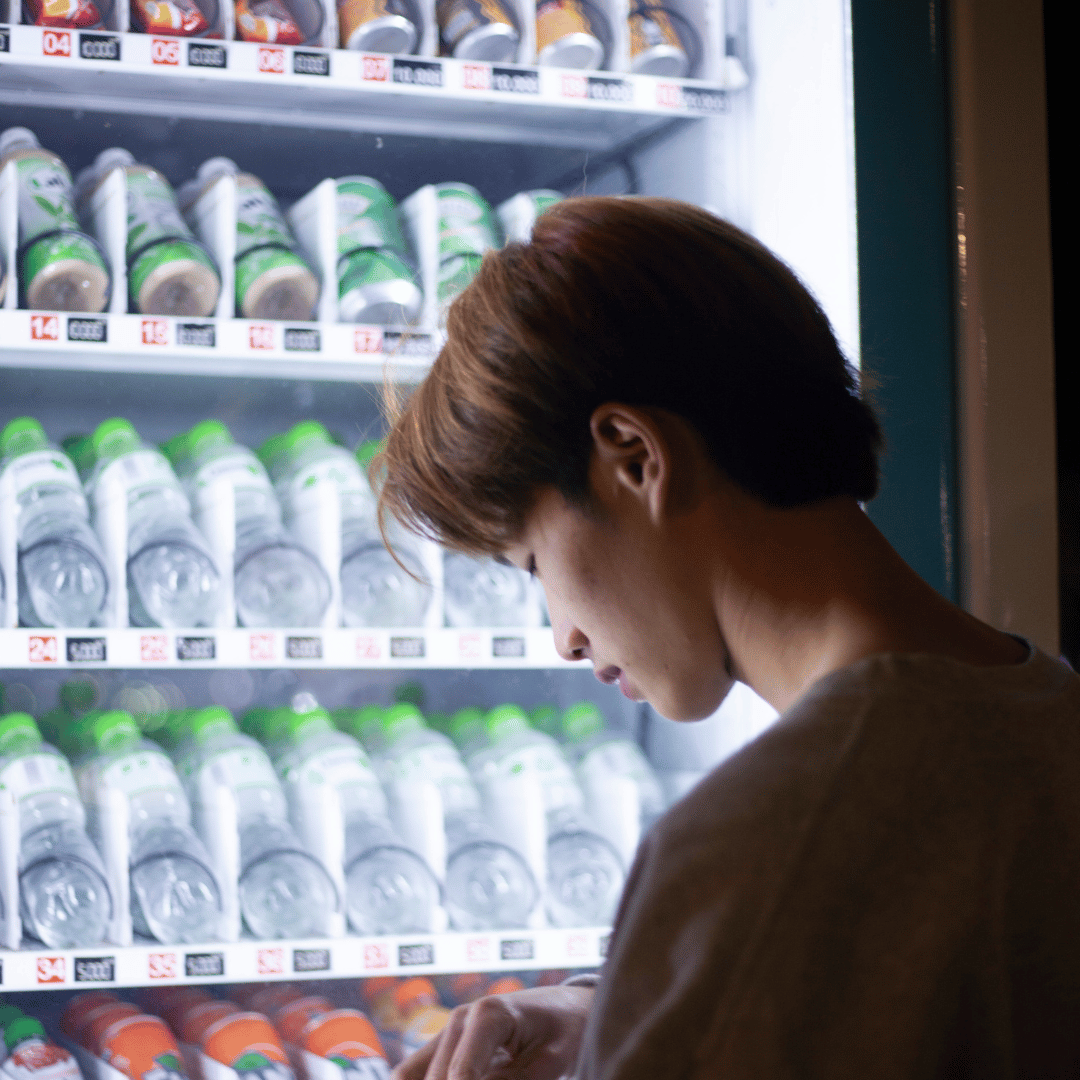When people think of vending machines, they typically picture quick convenience—something easy to grab between meetings, on a lunch break, or during a late-night shift. But when those machines distribute consumables like water or snacks, there’s an unspoken trust that the contents are safe and clean. That trust was recently challenged in Bethlehem, Pennsylvania, where a water vending machine located inside a grocery store had to be shut down due to concerns over bacterial contamination.
The incident, reported by Lehigh Valley News, highlights an often-overlooked but critical aspect of vending services: health and safety compliance. While the machine was later cleared and allowed to reopen after testing showed no contamination, the temporary shutdown raised concerns not only among consumers but also among business owners who rely on vending machines to serve staff and visitors.
For companies offering vending as an amenity to employees or customers, this story serves as a wake-up call. It isn’t just about having machines that work—it’s about having machines that are maintained, sanitized, and held to high standards, especially when food or beverages are involved. In an era where consumer expectations around transparency and hygiene are higher than ever, businesses can’t afford to overlook this.
This article takes a closer look at what happened in Bethlehem, what it means for businesses in the region, and how choosing the right vending provider can make all the difference. Whether you’re running an office, a warehouse, or a hospital, the safety of your vending machine offerings is not a minor detail—it’s a reflection of your business values.
The Bethlehem Incident: What Happened and Why It Matters
A water vending machine located inside a Valley Farm Market in Bethlehem, Pennsylvania, was shut down after routine testing raised potential concerns about bacterial contamination. The shutdown was precautionary but necessary, as Lehigh County authorities worked to ensure that no public health risk was present.
According to Lehigh Valley News, the machine was taken offline while the water was retested. Eventually, health officials confirmed that the unit’s water showed no signs of harmful bacteria and cleared it to return to operation. While the situation was resolved quickly and no illnesses were reported, the incident still sparked valid concerns from shoppers and store visitors who expected safe, high-quality water from the vending system.
The significance of this case goes beyond one machine. It illustrates how even a small lapse—or a perceived lapse—in vending machine maintenance can have ripple effects on public confidence and business credibility. For grocery stores, offices, and other establishments that depend on vending services to support day-to-day operations or customer experience, it’s a reminder that quality control is not optional.
Whether the product is bottled water, fresh sandwiches, or granola bars, cleanliness and safety protocols must be non-negotiable. Machines that handle consumables should always be under strict maintenance routines and comply with local health department guidelines. When something goes wrong, it’s not just a mechanical issue—it becomes a matter of public trust.
In short, the Bethlehem case reinforces that proactive vending management is just as important as stocking the right items. Business owners need to know that their vending partners take safety seriously—because their reputation may depend on it.
Risks and Responsibilities: What Business Owners Should Know
Vending machines are often seen as plug-and-play solutions—convenient, low-maintenance, and self-sufficient. But for machines that dispense food or beverages, especially water, there’s far more at stake than just keeping them stocked. When vending equipment isn’t maintained properly, the risks can be significant, both for public health and for the reputation of the business hosting the machine.
One of the primary concerns is contamination, which can occur due to faulty filtration systems, expired products, or poor cleaning practices. In the case of water vending machines, even a small lapse in sanitation could introduce bacteria like coliforms, which are commonly used as indicators of unsafe drinking water. If such issues go unnoticed, they can lead to serious health implications, ranging from mild gastrointestinal discomfort to more severe infections—particularly in children, the elderly, and immunocompromised individuals.
For business owners, the responsibility doesn’t end with signing a contract with a vending provider. It’s essential to ensure that the provider adheres to regular service schedules, complies with local health codes, and uses equipment that meets safety standards. Ignoring these responsibilities can lead to liability risks, customer complaints, or even health department citations.
In short, vending machine safety isn’t just the vendor’s issue—it’s a shared responsibility. Business owners must be proactive in understanding what their vending machines are dispensing and how they’re maintained.
Preventive Measures: How Quality Vendors Keep Machines Safe
Ensuring the safety of vending machine products—especially when dealing with consumables like water, coffee, or fresh snacks—requires more than just occasional checkups. Trusted vending providers operate with detailed protocols that prioritize health, cleanliness, and compliance at every level.
The most reliable vendors begin with routine maintenance schedules, often conducted weekly or biweekly. These visits are not limited to restocking; they include inspecting filters, checking temperature settings, sanitizing dispensing components, and removing any expired items. For water vending machines specifically, certified filtration systems must be tested and replaced periodically to prevent the buildup of bacteria or mineral deposits.
Another critical practice is compliance with local and state health codes. Professional vending companies should keep detailed service logs and adhere to food safety guidelines provided by regulatory bodies like the FDA or state departments of health. Machines dispensing beverages or perishable goods must maintain safe internal temperatures and be located in clean, well-ventilated environments.
Modern technology also plays a role. Many vendors are now using smart diagnostics to monitor machine performance remotely. These systems can detect anomalies like changes in water pressure, irregular temperature drops, or lapsed refill cycles—triggering alerts before a problem reaches the customer.
Staff training is equally important. Technicians must be trained not only in machine mechanics but also in food safety procedures. That means using gloves when handling open containers, regularly sanitizing high-contact surfaces, and ensuring machines are securely locked to prevent tampering.
Ultimately, preventive care isn’t just about avoiding breakdowns—it’s about upholding a standard. When vending machines are managed with these practices in place, they become reliable, safe, and truly convenient for businesses and customers alike.
Choosing the Right Vending Partner for Your Business
For business owners, vending machines are more than just a convenience—they’re a reflection of your company’s environment, values, and attention to employee or customer well-being. Choosing the right vending partner means entrusting someone to maintain that reflection, and not all providers are created equal.
Start by evaluating the provider’s track record in cleanliness, product quality, and responsiveness. Reputable companies will offer clear service agreements, maintenance schedules, and health compliance documentation upon request. If you’re not receiving that level of transparency, it’s a red flag.
It’s also important to ask about the frequency of maintenance and restocking visits. Some vendors cut corners by restocking only when machines run low, which can lead to hygiene issues and frustrated users. A quality partner will perform routine maintenance—even when it’s not immediately necessary—to ensure everything remains clean, compliant, and functional.
Inquire about product variety as well. A provider who offers a narrow range of options may not be prioritizing your users’ needs. Today’s vending services should include beverages, classic snacks, healthy alternatives, and even allergen-friendly options. Machines that offer filtered water, fresh meals, or even local items can elevate the breakroom experience and reduce reliance on off-site food runs.
Finally, consider how accessible and reliable the vendor is for repairs and emergency issues. A machine that goes out of order and stays that way reflects poorly on your business—especially if it’s the only refreshment option on-site.
By taking time to vet your vending partner, you’re not just securing snacks or water—you’re investing in a service that supports your workforce, keeps operations running smoothly, and reinforces your brand’s reputation.
Conclusion: A Wake-Up Call for Quality Assurance
The recent vending machine incident in Bethlehem may have been resolved quickly, but it left a lasting impression on both consumers and business owners. It was a reminder that even small lapses in maintenance can shake public trust and create unnecessary reputational risk—especially when dealing with products as essential as water.
For business owners, this is an opportunity to re-evaluate vending services not just for convenience or cost, but for reliability, cleanliness, and long-term value. Choosing the right provider means ensuring your staff, customers, or visitors never have to question the quality of what’s inside the machine.
Vending machines are no longer a background service—they’re part of your workplace experience. With the right maintenance, oversight, and vendor relationship, they can become a symbol of care, safety, and professionalism. Now is the time to make sure your machines—and your vending partners—are living up to that standard.



